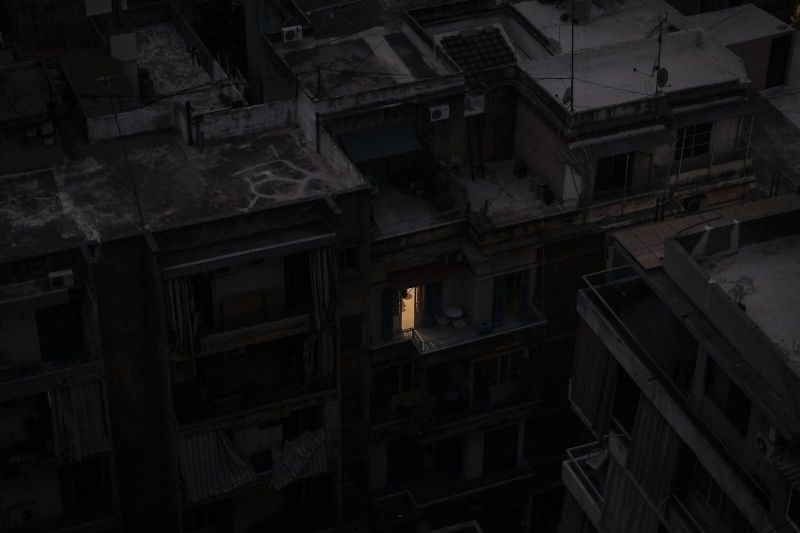
Many areas of the country are still only receiving 1-2 hours of state power per day. (Credit: João Sousa/L’Orient Today)
BEIRUT — Despite the arrival Friday of a ship carrying 31,000 tons of fuel procured through a convoluted deal between Lebanon and Iraq and intended to alleviate electricity shortages, a widespread improvement in power supply is still weeks away.
An immediate change in the number of hours of blackout per day —currently in excess of 22 hours in many areas — should not be expected, an Electricité du Liban source told L’Orient Today on Tuesday. The source explained that because EDL itself needs the Iraqi fuel to get its systems up and running, “for people to see a change, and get more electricity hours, we will need to wait for the second, and maybe for the third, shipment to arrive.”
Marc Ayoub, an energy policy researcher at the Issam Fares Institute for Public Policy and International Affairs at the American University of Beirut, also expects it to be several weeks before improvements in the grid’s electricity supply materialize.
“The difference won’t really show until we receive the next shipment of fuel oil, which is set to arrive next week, and then twice each month,” he said, claiming that EDL is rationing what has already been delivered until it can establish how frequently the ships will come.
Ayoub, however, also emphasized that the quantities of Iraqi fuel set to be delivered in the weeks and months ahead only represent around 25-30 percent of Lebanon’s power plants’ needs. This, he explained, means that if successive shipments are delivered every 15 days, they will only assist in providing a daily increase of 6-7 hours of power supply.
In an effort to assist cash-strapped Lebanon in redressing severe countrywide power outages, Iraq in July signed an agreement with the Lebanese government under which it would provide Lebanon with 1 million tons of fuel oil in exchange for “goods and services.”
However, because Iraq’s high-sulfur fuel oil is incompatible with Lebanon power plants, it must be exchanged for fuel of a usable grade. The countries have agreed this swap will happen through regular tenders, with Iraq choosing the companies that participate. The first tender, won by Emirates National Oil Company, took place at the end of July.
At the time of the first tender, then caretaker Energy Minister Raymond Ghajar said that when all the fuel oil has been swapped, he expects Lebanon will have obtained 750,000–800,000 tons of usable fuel through the Iraqi deal.